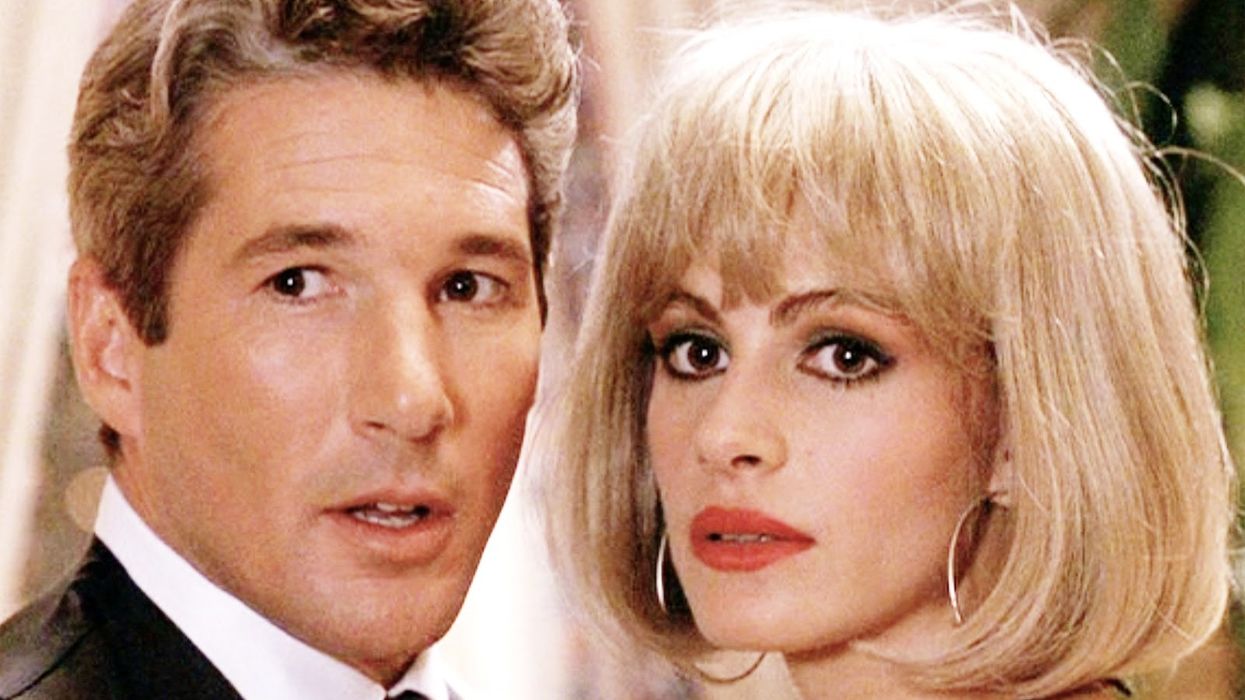How Garry Marshall Made a Rom-Com by Marrying Film and TV
Garry Marshall, who died yesterday, will be remembered for bridging the gap between film and TV.

The TV vs. film debate feels like a product of this current age of prestige TV, though the complicated relationship between TV and film dates back to the advent of home media—the boob tube's boxy proportions and swelling popularity influenced directors to start shooting in wider angles, with more "epic" imagery. In the early 1970s, when indie films were receiving mainstream recognition thanks to, among others, John Cassavetes and his coterie of New York filmmaking friends, the behind-the-scenes relationship between the two mediums was getting more intimate. Few people were as deeply involved in this relationship as Garry Marshall.
His work on TV influenced film, and his work on film influenced TV.
Marshall, the legendary writer and director who died this week at 81, had a relationship with both mediums decades before the golden age of TV. His work on TV influenced film, and his work on film influenced TV. After the unexpected success of George Lucas' American Graffiti, America went crazy for Marshall's nostalgia-steeped TV show Happy Days. (The original pilot had been rejected several years earlier.) The show—and the film—helped usher in a wave of 1950s mawkishness.
The satirical angle, never sharp but certainly present early on, was lost on many viewers, who saw in the lovesick cookie-cutter characters—varsity jacket-wearing crew-cuts who spend their time in diners and cars, culled from the daydreams of Leave It to Beaver baby boomers—reflections of themselves. You could consider this the first wave of pop-culture nostalgia, which now washes over us with increasing frequency and fervor; Marshall, and via Marshall Lucas, were among the first writer-directors to capitalize on nostalgia's cloying nature. Lucas did it with a sigh; Marshall with a sly smile.

George Lucas requested a copy of the unsold pilot before beginning production on American Graffiti, which led to him cast Ron Howard out of an alleged cavalcade of 1,000 actors. That means Marshall's pilot inspired Lucas' film, which then inspired TV execs to greenlight a new version of the pilot—adding a whole new layer of yearning and nostalgia to the story. (They also both use the song "Rock Around the Clock," before the show switched to the song "Happy Days" after a couple seasons.)
Pretty Woman helped engender the American rom-com reimagining of the '90s.
Marshall, who eventually abandoned the tube, directed his share of comedies in the '80s, as well as the Bette Midler-starring weeper Beaches. (He later appeared on-screen with Middler in the millennial favorite Hocus Pocus, playing an affable old man in a devil costume.)
But his biggest hit, Pretty Woman (1990), helped engender the American rom-com reimagining of the '90s. Initially conceived as some kind of dark, brooding meditation on sex and class, the movie turned into a Cinderella story in go-go boots. The ugly-ducking-who's-actually-very-sexy-because-sexy-women-sell-movie-tickets genre, which has roots in John Hughes, finally manifested as an Oscar-winning behemoth with Marshall's movie. (He reinvigorated the genre a decade later, with Anne Hathaway in The Princess Diaries.) Before Hollywood wanted to remake everything to be dark and gritty, Marshall took a dark story and doused it with glamor, turning Julia Roberts into a superstar and making gray hair on men sexy again. If there's a lesson to be learned here, it's that sentimentality will seduce moviegoers if it's being delivered with a pretty smile.

He was not limited by mediums, but made mediums work for him.
Marshall's ultimate legacy is that he was not limited by mediums, but made mediums work for him. He started off as a joke writer before becoming a television writer, creator, producer, director (his haunted house episode of Happy Days is certifiably great), and actor. Regarded as a gregarious and generous man by pretty much everyone who ever spoke with him, Marshall helped launch the career of Robin Williams—his logorrheic alien Mork remains one of the best, most undiluted depictions of Williams' energy—and used his clout to fund small theatrical productions and give female artists more exposure.
Marshall will be remembered as one of the nicest men in American entertainment: someone who tries to make a difference, even if he's directing Valentine's Day. Because of that, we can probably forgive him for Scott Baio.











